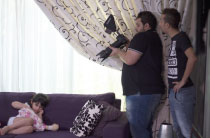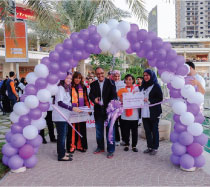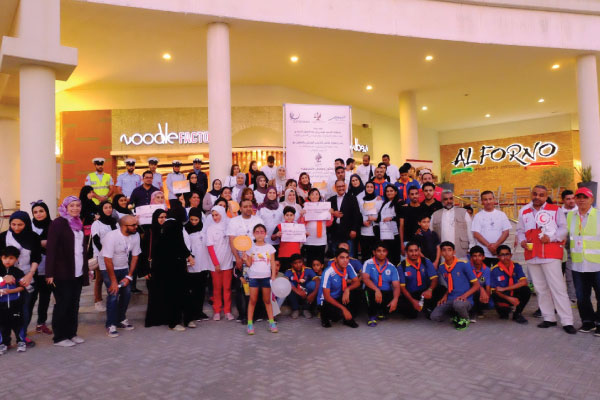The young minds who are the driving force of Naseem, a social initiative of the Bahraini Youth Forum Society (BYFS), are striving towards a progressive society. Behnaz Sanjana caught up with Enas Fardan, head of Naseem, to learn more.
Naseem is a voluntary initiative of BYFS providing emotional support to disadvantaged groups. Its members engage in community service through the use of social networks and multimedia channels, things that are integral in the lives of youth today.
Through public events, short films, music videos, paintings, photography, caricatures and more, members shed light on sections of society that need to be heard.
The latest project, now under way, in cooperation with Tafawuq Center for Women and Gender, is targeted at abused women in Bahrain.
“A study in 2014 by the World Health Organisation showed that, on average, 30 per cent of women who have been in a relationship report that they have experienced some form of physical or sexual violence by their partner,” says Enas. “An earlier UN study showed that 70 per cent of women around the world experience at least one type of violence in their lives.”
Based on these alarming statistics, BYFS has started an online survey to record the numbers of abused women in Bahrain. “We have obtained a sample of 294 abused women within Bahrain who participated voluntarily in the online survey. It shows that 38 per cent are aged 21 to 30 years and another 38 per cent from 31 to 40 years. The average age of the sample is 33 years,” says Enas.
 The survey showed that more than half the women are graduates and nearly half are employed, but they still suffered various forms of domestic abuse, mainly at the hands of their husbands. There are also cases where fathers, brothers and uncles have been abusive. Enas says: “Most of the women reported various kinds of abuse. The most common was emotional abuse, followed by verbal, physical, economic and, finally, sexual abuse.”
The survey showed that more than half the women are graduates and nearly half are employed, but they still suffered various forms of domestic abuse, mainly at the hands of their husbands. There are also cases where fathers, brothers and uncles have been abusive. Enas says: “Most of the women reported various kinds of abuse. The most common was emotional abuse, followed by verbal, physical, economic and, finally, sexual abuse.”
The primary objectives of the project are to make society aware of the problem, make women aware of their rights and also to spread awareness of Bahrain’s newlyissued law of Protection from Domestic Violence, enacted in August 2015.
The We Respect Her project is being implemented on two fronts: direct awareness and awareness through art. Direct awareness will be through a report collated from the online survey, awareness sessions in schools and universities about domestic violence and protective laws and, lastly, through a bilingual booklet listing centres for help.
A walkathon and art exhibition held in support of the project garnered huge crowds.
 Awareness through art will take place with works of photography, sketches and caricatures, all depicting the plight of victims of abuse. “Malak is a short film that touches upon the negative impact that domestic violence has on children. We have produced two songs, one of which has a video clip. We have also launched an art competition where artists from Bahrain can participate in drawing and painting artworks that talk about the impact of domestic violence against women on the whole family and society,” says Enas.
Awareness through art will take place with works of photography, sketches and caricatures, all depicting the plight of victims of abuse. “Malak is a short film that touches upon the negative impact that domestic violence has on children. We have produced two songs, one of which has a video clip. We have also launched an art competition where artists from Bahrain can participate in drawing and painting artworks that talk about the impact of domestic violence against women on the whole family and society,” says Enas.
Emphasising the importance of the issue, she says: “Women make up half of the community; they give birth and raise the other half. The more we empower the woman, socially, economically and politically, the more developed our society will become. The impact of domestic abuse, unfortunately, does not stop at harming the woman’s physical and mental health. Children from such backgrounds will interact with the community, thereby spreading the negative impact to the whole community.”
Enas thinks there are two powerful weapons to address this complex problem; awareness and strong laws. “Women need to be aware of their rights and duties within the family and marriage. The second approach should be educating the community on the negative impact of domestic violence against women on the community as a whole, on gender equality aspects and the importance of respecting and supporting women for community development. On the other hand, we need strong laws that protect women from domestic violence that include legal consequences for the person who commits such violent acts.”


































